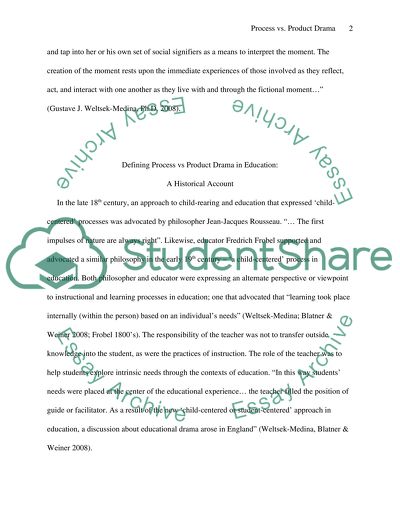Cite this document
(“Process vs Product Drama in Education Essay Example | Topics and Well Written Essays - 3750 words”, n.d.)
Retrieved from https://studentshare.org/education/1614737-process-vs-product-drama-in-education
Retrieved from https://studentshare.org/education/1614737-process-vs-product-drama-in-education
(Process Vs Product Drama in Education Essay Example | Topics and Well Written Essays - 3750 Words)
https://studentshare.org/education/1614737-process-vs-product-drama-in-education.
https://studentshare.org/education/1614737-process-vs-product-drama-in-education.
“Process Vs Product Drama in Education Essay Example | Topics and Well Written Essays - 3750 Words”, n.d. https://studentshare.org/education/1614737-process-vs-product-drama-in-education.


